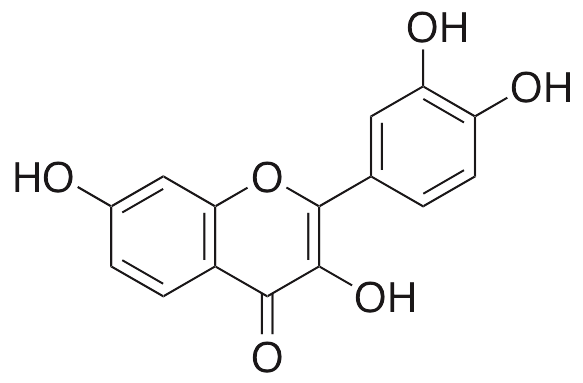Description
Fisetin is a flavonoid found in various plant sources that exhibits neuroprotective, cognition enhancing, antioxidative, immunosuppressive, anti-angiogenic, and anticancer activities. In animal models of Alzheimer’s disease, fisetin decreases levels of p25 and increases phosphorylation of ERK, resulting in fewer deficits in learning and memory. In cellular models, fisetin decreases levels of H2O2-generated superoxide anions, hydroxyl radicals, and ROS. Fisetin activates sirtuins, displaying anti-aging potential. In animal models, this compound prevents delayed-type hypersensitivity reactions; in related cellular models, fisetin inhibits Th1/Th2 cytokine production, activation of NF-κB, and signaling by nuclear factor of activated T cells (NFAT). In various cell lines, fisetin inhibits matrix metalloproteinases 1, 3, 7, 9, and 14, inhibiting tube/vessel formation and cell proliferation. In nasopharyngeal carcinoma cells, fisetin inhibits the epithelial-to-mesenchymal transition (EMT), preventing cell migration and invasion. This compound also inhibits topoisomerases I and II.
